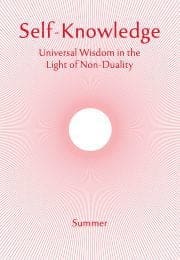A Direct Pointer to Direct Experience
The Direct Experience of Reality (in Sanskrit Aparokshanubhuti) is a short classic text on the non-dual teachings. It was once thought to have been written by the original Shankara Acharya, who probably lived in the eighth century and gave what is still the most complete and respected presentation of the non-dual philosophy. Most scholars now believe that this text was in fact written later by a close follower of Shankara. It is seen as a succinct and relatively simple introduction to the essential teachings, one which may be helpful to those who find it difficult or unnecessary to follow the longer and more complex works, such as Shankara’s commentaries on the Upanishads and the Bhagavad Gita.
Direct Experience of Reality is indeed relatively short. But this brevity is due to the fact that it does not dwell on much of the discussion and illustrations that are elsewhere used to convey and explain the teachings. It will appear simple if we are ready to hear the essentials given in the most direct way and to understand the subtleties without elaboration.
One passage emphasises the difference between the true Self (Atman) and the physical body. The reason for this emphasis is to make clear that the body is not the Self. At the beginning of the path we have the strong feeling of identity with the body and sense-experience, this is the root of egoity, and this conviction has to be challenged.
The text then goes on to say that in Reality there are no differences, and that the physical body (and by extension the physical world) are not different from Atman.
These are two central points in the non-dual teachings. First: the body is not your true Self, the two are different in kind. If this were not true, we could never be entirely free of the limitations, sufferings and mortality of the physical body. Second: in Reality there are no differences, there is only Atman. If this were not true, the principle of non-duality would be contradicted, there would be more than one reality, which is absurd and would obviate the possibility of ultimate knowledge.
Subscribe or enrol for free guest access to read all of this article and Self-Knowledge online.
Already subscribed or enrolled? Log in:


